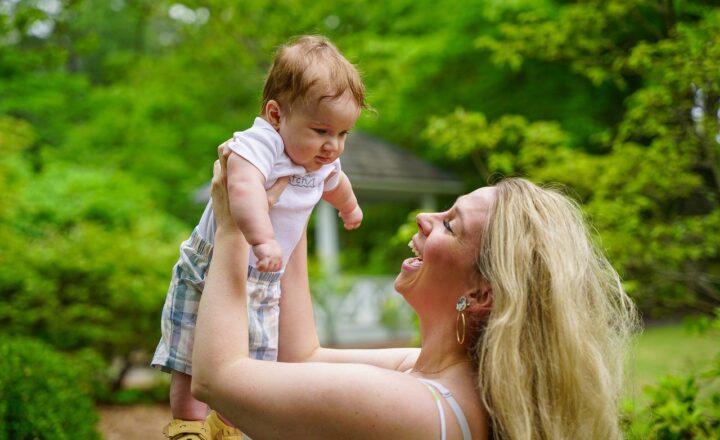Parenting Through the Ages: Lessons Learned from Generations Past
November 19, 2024

Parenting is an age-old practice that has evolved significantly over the years. Each generation brings its philosophies, techniques, and ideals about raising children. In this article, we will explore parenting styles through the ages, examining the lessons learned from previous generations. We will also focus on the trends that have shaped modern parenting, along with the enduring principles that remain relevant today.
1. A Brief History of Parenting
From the earliest days of humanity, parental instincts have driven the nurturing of offspring. Prehistoric societies relied on instinctual parenting, where survival was the primary focus. As civilizations progressed, so did the methods of child-rearing. Here is an overview of parenting from ancient times to the modern era:
- Ancient Civilizations: In ancient Egypt, parents used a mix of affection and discipline. Children were expected to contribute to family responsibilities from a young age. In contrast, the Greeks emphasized education and intellectual growth.
- The Middle Ages: During this time, parenting became more about duty and less about love. Children were often seen as laborers who needed to obey their parents and work for the family’s benefit.
- The Enlightenment Era: The 17th and 18th centuries saw a shift towards more emotional connections. Philosophers like John Locke and Jean-Jacques Rousseau began to speak on the importance of nurturing children’s emotions and intellect.
- The Industrial Revolution: With the rise of city life, parenting shifted towards a more structured way of living. Parents often worked long hours, which impacted their relationship with their children.
- The 20th Century: The 1900s witnessed diverse parenting styles, from strict authoritarian models to the popularity of permissiveness in the 1970s, encouraging autonomy in children.
Through this brief overview, we see that the challenges and dynamics of parenting have changed dramatically, shaping the ways in which children are raised.
2. Key Lessons from Generations Past
As we examine the parenting styles of each era, certain valuable lessons emerge:
- Consistency is Fundamental: Whether in ancient Egypt or modern-day America, one consistent theme is the importance of consistency. Children thrive in environments where expectations are clear, and routines are predictable. Parents today can take this lesson to heart by establishing stable structures in their own households.
- Balance of Discipline and Affection: Balancing discipline with love has been important across generations. The authoritarian approach of the past is often viewed unfavorably now, but researchers suggest that a combination of firm expectations coupled with affection leads to children’s overall well-being.
- Learning from Mistakes: Each generation has made its mistakes, and the importance of trial and error remains. Parents can embrace their own failures as learning experiences, teaching resilience and problem-solving skills to their children.
- Encouraging Independence: While modern parenting leans towards nurturing independence, this notion can be traced back to educational ideals from Enlightenment thinkers like Rousseau. Teaching children to be self-sufficient has proven invaluable across eras.
- Emotional Intelligence Matters: The focus on emotional intelligence has become increasingly important today. Prior generations also recognized the need for affection and understanding; however, it is only recently that it has been prioritized. Understanding and teaching empathy can aid children’s future interactions.
The lessons learned throughout the ages provide a framework for contemporary parents navigating their roles today.
3. Modern Parenting Trends and Insights
Informed by historical practices, today’s parenting trends showcase a blend of old and new philosophies, which can foster healthier family dynamics:
- Attachment Parenting: This approach emphasizes strong bonds between parent and child, echoing practices from different historical periods that prioritized emotional connection.
- Mindfulness in Parenting: Mindfulness encourages parental presence and emotional regulation, paralleling the ancient ideas of focused attention and awareness in relationships.
- Positive Discipline: Advocating for discipline that involves understanding and respect, modern theories remind us of the balance between authority and affection established in previous eras.
- Community and Support Networks: In the past, parenting was often a communal effort, and today, social networks provide platforms for shared parenting experiences. Engaging with community allows for collective support and wisdom-sharing.
- Technological Integration: Modern parents leverage technology in parenting from educational apps to online co-parenting resources, reminiscent of the educational philosophies seen in earlier periods.
The balance of historical wisdom and modern techniques contributes to the evolution of parenting in a complex world.
4. The Future of Parenting
As we move forward, understanding how parenting shapes and is shaped by societal changes is paramount. Here are some predictions and considerations for the future of parenting:
- Increased Focus on Mental Health: As awareness of mental health continues to grow, future parenting will dive deeper into emotional and psychological stability, prioritizing children’s mental well-being.
- Education Evolution: Education systems will likely become more tailored to individual learning styles, adapting to the skills children will need in a rapidly changing world.
- Environmental Awareness: Future generations of parents may focus more on sustainability and environmental education to raise conscientious global citizens.
- Global Parenting Communities: With the rise of the internet, a more globalized perspective on parenting could emerge, where families learn from diverse cultures and practices.
- Integration of Technology and Parenting: As technology continues to evolve, parents will likely implement tools to enhance learning and connection without losing the essence of human interaction.
In essence, while the mechanisms of parenting may evolve, the fundamental values of care, consistency, and love will continue to guide parents through the generations.
Conclusion
Parenting is a journey filled with lessons learned from generations past. By examining the history and the evolution of parenting techniques, we can glean insights into successful methodologies and adapt them to modern contexts. The best parenting practices are those grounded in affection, consistency, and adaptability. As we embrace the wisdom of our ancestors, we pave the way for future generations who will continue to learn and grow in the art of parenting.
By reflecting on the lessons from the past and incorporating them into today’s rapidly changing world, we can shape a nurturing environment for our children and ensure they thrive as individuals in society.






